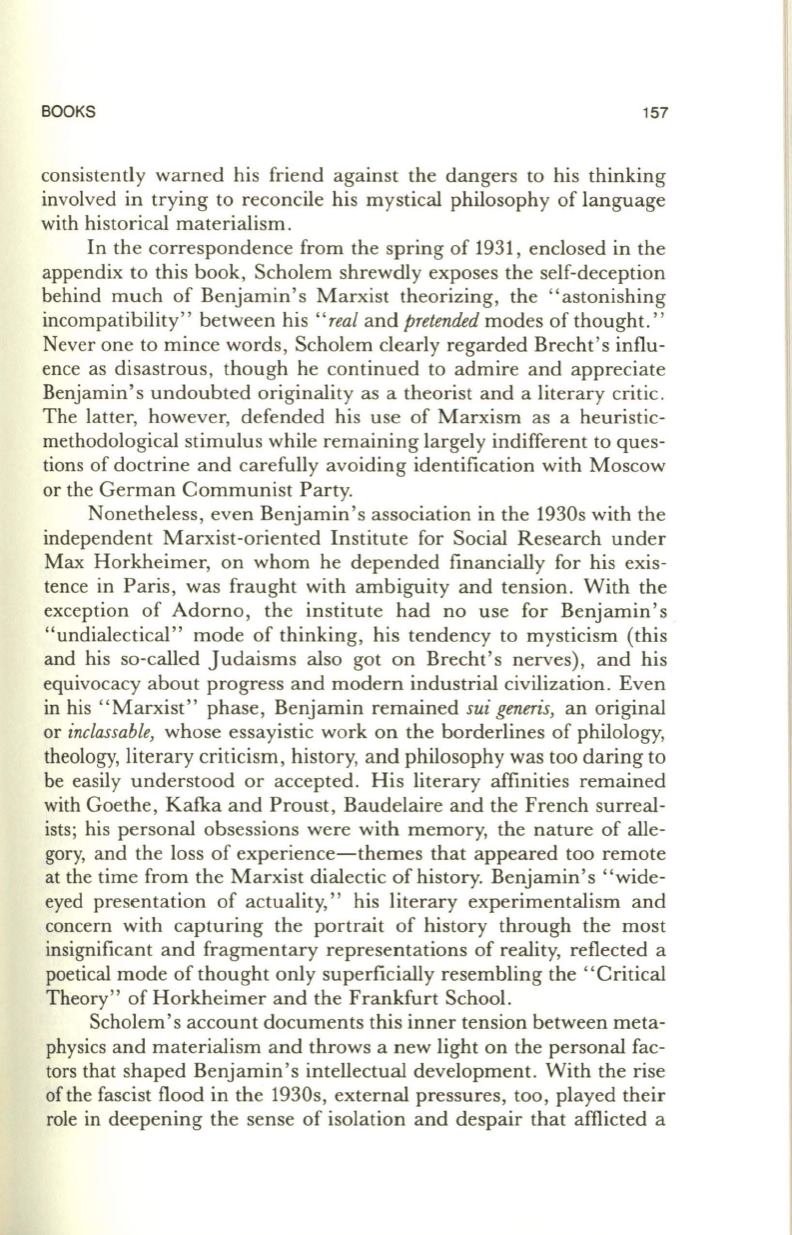
BOOKS
157
consistently warned his friend against the dangers to his thinking
involved in trying to reconcile his mystical philosophy of language
with historical materialism.
In the correspondence from the spring of 1931, enclosed in the
appendix to this book, Scholem shrewdly exposes the self-deception
behind much of Benjamin's Marxist theorizing, the "astonishing
incompatibility" between his
"real
and
pretended
modes of thought."
Never one to mince words, Scholem clearly regarded Brecht's influ–
ence as disastrous, though he continued to admire and appreciate
Benjamin's undoubted originality as a theorist and a literary critic .
The latter, however, defended his use of Marxism as a heuristic–
methodological stimulus while remaining largely indifferent to ques–
tions of doctrine and carefully avoiding identification with Moscow
or the German Communist Party.
Nonetheless, even Benjamin's association in the 1930s with the
independent Marxist-oriented Institute for Social Research under
Max Horkheimer, on whom he depended financially for his exis–
tence in Paris, was fraught with ambiguity and tension. With the
exception of Adorno, the institute had no use for Benjamin's
"undialectical" mode of thinking, his tendency to mysticism (this
and his so-called Judaisms also got on Brecht' s nerves), and his
equivocacy about progress and modern industrial civilization. Even
in his "Marxist" phase, Benjamin remained
sui generis,
an original
or
inclassable,
whose essayistic work on the borderlines of philology,
theology, literary criticism, history, and philosophy was too daring to
be easily understood or accepted. His literary affinities remained
with Goethe, Kafka and Proust, Baudelaire and the French surreal–
ists; his personal obsessions were with memory, the nature of alle–
gory, and the loss of experience-themes that appeared too remote
at the time from the Marxist dialectic of history. Benjamin's "wide–
eyed presentation of actuality," his literary experimentalism and
concern with capturing the portrait of history through the most
insignificant and fragmentary representations of reality, reflected a
poetical mode of thought only superficially resembling the "Critical
Theory" of Horkheimer and the Frankfurt School.
Scholem's account documents this inner tension between meta–
physics and materialism and throws a new light on the personal fac–
tors that shaped Benjamin's intellectual development . With the rise
of the fascist flood in the 1930s, external pressures, too, played their
role in deepening the sense of isolation and despair that afflicted a


